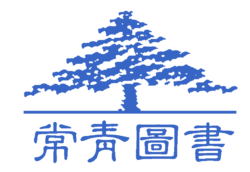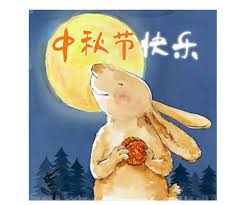The 4th Bai Meigui Competition: Picture Book
We're delighted to announce the results of the 4th Bai Meigui Translation Competition!
1st prize: Jasmine Alexander - St. Paul's Girls' School, London
Runners up (in alphabetical order) :
Esme Edworthy - Clifton College, Bristol
Christina Pui Man Lee - St. Paul's Co-Educational College, Hong Kong
Ursula Smith, Aylesbury High School
This year the competition was open exclusively to students in secondary education, and the response was fantastic - we had entries from students around the UK and all over the world, and our judging panel was extremely impressed by the quality of the translations. Jasmine's winning translation will be published in a bilingual text by Balestier Press - we'll be providing updates on the process in the coming months, and are looking forward to seeing it in print!
And thank you to Cypress Books for generously providing prizes of Chinese fiction in translation for the runners-up and their schools.
Here are some comments from our judges - Minjie Chen, Helen Wang, and Adam Lanphier:
It was a pleasure to judge this competition, and to see so many entries from younger learners of Chinese! (“I didn’t start learning Chinese until I was 18. I couldn’t have done a single word of it at their age!” says Helen). We hope everyone enjoyed the process, and will continue to enjoy Chinese books and share them in English with friends and family.
As judges, our task was to select what we believed to be the best translations from all the entries. We were looking for fidelity of the English translation to the original Chinese, quality of English language and style, and suitability for a young English picture book reader. We also considered the translators’ commentaries, appreciating those that were particularly insightful about the process. The Writing Chinese team had numbered all the entrants, to ensure that each entry was completely anonymous.
The winning entry, by Jasmine Alexander, was our favourite. It was an accurate translation, with polished, confident English. We loved how it conveyed the excitement and joy of both family and festival, and the use of “Peekaboo!” when the little rabbits come home (p.12) brought a big smile to our faces.
We enjoyed the translator’s explanation of the festival. The translation notes showed an appreciation for what is foreign and what is familiar to an English audience, and the thoughtfulness of the translator in bridging those gaps.
There was a joy and a lightness about this translation, which we thought was perfect for the intended reader.
We’d like to commend and congratulate the three runners-up - Ursula, Christina, and Esme - for their excellent work – there was a high level of accuracy, good English, and consideration for the reader, all of which are essential for translators of the future! Keep up the good work!
- Minjie, Helen, and Adam
***
This Year's Competition
The competition is free to enter, and this year it is exclusively open to students in secondary education, so if you are learning Chinese at school this could be a fantastic opportunity.
We are delighted to announce that our text is the 2016 winner of China's Bronze and Sunflower Picture Book Award, and is written by acclaimed author, illustrator and Beijing school art teacher Meng Yanan 孟亚楠. It's a lovely heart-warming story which is beautifully illustrated (by the author) and we hope you will enjoy it as much as we do.
Meng Yanan has very kindly made an audio-recording of this story specially for the competition, so do feel free to listen to this as you read, by clicking on the link below the picture. To open the book and start translating, please click on the image of the book cover below (you will need to enter your email address to download the story but this will not be used for any other purpose).
As well as translating the story, we would like you to include with your translation a short piece of writing (in English, maximum 400 words) answering the questions in italics below and explaining your reasons.
Imagine you are presenting your translated story to an audience who knows nothing about China. What information about Chinese culture would you need to tell them? Were there any specific choices you made in your translation to adapt it for the needs of an English-language reader? If so note these and explain your reasons.
If appropriate, this piece of writing may be included as a translator's preface in the final publication.
The Prize
The winning entry will have the chance to be mentored by award-winning translator Helen Wang, and to see their translation published in a bilingual edition of the text by Balestier Press. The winning book will be marketed to schools and libraries throughout the UK and worldwide. We're also very grateful to Cypress Books, for providing mystery prizes for the winner and runners-ups' schools!
The Judges
We're honoured to have a panel of award-winning translators and experts on children's fiction to judge our competition. Minjie Chen is an expert on children's literature, and is a librarian working with the Chinese collection of the Cotsen Children's Library at Princeton University. Helen Wang has translated Cao Wenxuan's Bronze and Sunflower, among many other things, and she won the 2017 Marsh Award for Children's Literature in Translation. Helen and Minjie are two of the co-founders of the wonderful website on Chinese children's literature, Chinese Books for Young Readers. Adam Lanphier is a translator and Chinese teacher based in New York, who has published translations of several Chinese picture books.
The Rules
You must be a secondary school student.
If your translation is chosen as the winning entry, you must be willing to work with the editors and publishers and for the final version to be published.
The winner and their school may be featured in relevant publicity, by the Writing Chinese project at the University of Leeds, and by Balestier Press, for the book.
You must include the statement of academic integrity below with your work, to confirm that you have done the translation yourself.
How To Enter
The competition deadline is midnight (GMT) on 26th February 2018.
To enter, please send an email to writingchinese@leeds.ac.uk, with your name, the length of time you have studied Chinese language, and the name and address of your school. (This information will not be available to the judging panel, who will judge all entries anonymously).
NB: Please also include the following statement of academic integrity, extracted from the University of Leeds' code of conduct, to confirm that what you are submitting is your own work:-
I promise that in the attached submission I have not presented anyone else’s work, in whole or in part, as my own and I have not colluded with others in the preparation of this work.
Submissions which do not include this statement cannot be considered for the competition.
Attach a pdf file to your email including:-
Your translation, followed by your 400 word commentary. Please translate all of the text in the picture book. Don't worry about formatting your translation like the original picture book, but please include the page numbers so we can see which page you are translating. Please do not include your name/identifying information in the attachment.
The winner will be announced in Spring 2018.



